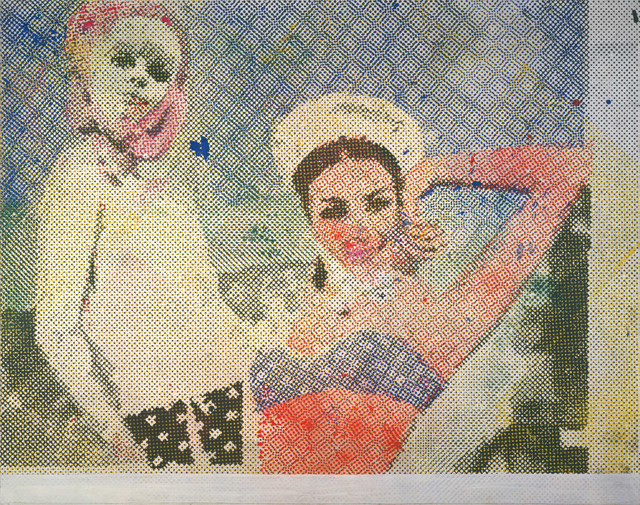Sigmar Polke At Tate Modern: A Rollercoaster Ride Through An Experimental Career
Last Updated 09 October 2014



Londonist Rating: ★★★☆☆
Sigmar Polke is held in high regard with the other great post-war German artists Kiefer, Richter and Baselitz. But compared to these other artists Polke was more experimental throughout his career and that's evident in this retrospective which includes many different styles of painting, film and sculpture in a creative and often confounding exhibition.
In the first few rooms we see dotted paintings that seem to resemble the work of Lichtenstein and multi-coloured representations of Tupperware that could pass for a Warhol. But while these artists were content to focus on one style, Polke moves on to creating representations of constellations and is seen on video intently listening out for sonic signals by pressing his ear against the Berlin Wall.
Polke experimented with drugs and different materials, even creating works using uranium. There are many great works on display including graceful herons painted on flannel, a dark purple triptych and his imposing and powerful watchtower series that may be a reference to concentration camps, but were left deliberately ambiguous.
Polke's creative dynamism is what makes this a fascinating roller coaster through his career, as we jump from watching a film of his trip to Pakistan and Afghanistan to then viewing giant tapestries featuring chairman Mao and football. There is no sense in trying to find a narrative in this exhibition as that would be a discredit to the tangential nature of Polke's art.
Some visitors may be frustrated that his work can often be purposefully difficult to interpret while others, like us, will revel in the free and experimental nature of Polke's work.
Alibis: Sigmar Polke 1963-2010 is on at Tate Modern until 8 February 2015. Tickets are £14.50 for adults, concessions available. Also on at Tate Modern is your last chance to catch the excellent Malevich exhibition.
For more great art to see in London, see our October listings.



